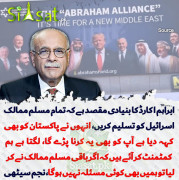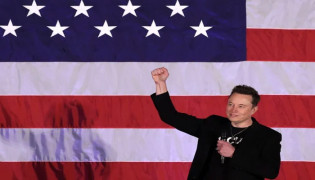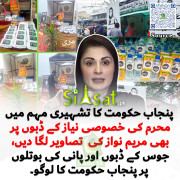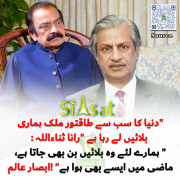sagaciouscorpion
MPA (400+ posts)
India, Pak move forward, step back in two hours
Hours after he and his Pakistani counterpart issued a joint statement that said action on terrorism should not be linked to the composite dialogue, Prime Minister Manmohan Singh insisted there was no change in Indias position that any meaningful dialogue cannot begin without addressing our main concern terrorism.
Pakistani Prime Minister Yousuf Raza Gilani, at his post-summit press conference, said he had told Singh terrorism and the Mumbai attack should not be bracketed with dialogue and that Singh had agreed.
But Singh said he did not agree with Gilanis interpretation. While India believed talks were the only way to improve relations with Pakistan, the starting point of any dialogue will be the issue of terrorism.
We havent compromised on anything and only reaffirmed our position that no dialogue, whether you call it composite or otherwise, is possible without curbing terrorism, Singh said. I have told Gilani that without sustained action against terrorists, acts like Mumbai 26/11 cannot be prevented. Another act like that one is not tolerable.
The joint statement, the product of three hours of negotiations, including a 45-minute meeting between Singh and Gilani, had affirmed that both prime ministers recognised that dialogue is the only way forward. By seeming to delink action on terrorism from the composite dialogue, the impression was India had concluded it would go ahead with talks and be satisfied with Gilanis promise Pakistan would do everything in its power to bring the perpetrators of 26/11 to justice.
Gilani seemed to have that impression. They are satisfied with my commitment that whosoever was behind the Mumbai attack will be brought to justice, he told the media.
Even after it was clear something was being lost in interpretation, Singh seemed to indicate talks would continue no matter what but they would be without substance. So long as Pakistani territory continues to be used for perpetrating acts of terrorism directed against India, I think the dialogue process even if it starts cannot move forward.
The battle of words overshadowed the joint statements other accomplishments. The two sides, for example, agreed to share real-time information on terrorism. Pakistan had also provided India a dossier on its most recent investigations into the Mumbai terror attacks. It was also agreed that the foreign secretaries on both sides would review the scenario from time to time.
While the statement had no direct reference to Kashmir, it became the first bilateral document to have a reference to threats that Pakistan faced in Balochistan. Islamabad has long claimed India is fomenting trouble in its western province. Gilani later spoke of terrorism in Balochistan. Singh said, Gilani told me that his people were telling him that the Indian embassy in that region is indulging in undesirable activities. I told him the embassy had been functioning for many years and, if he had any evidence in this regard, it should be brought to our notice.
The Indian prime minister seemed to be gambling on giving Pakistan free rein and hoping they would deliver more in the future. He said Gilani had told him that there is a common consensus being evolved that action will have to be taken against the Lashkar e Tayyeba founder, Hafiz Mohammad Saeed.
With agency inputs
http://www.hindustantimes.com/StoryPage ... f5c9d5a96b
Hours after he and his Pakistani counterpart issued a joint statement that said action on terrorism should not be linked to the composite dialogue, Prime Minister Manmohan Singh insisted there was no change in Indias position that any meaningful dialogue cannot begin without addressing our main concern terrorism.
Pakistani Prime Minister Yousuf Raza Gilani, at his post-summit press conference, said he had told Singh terrorism and the Mumbai attack should not be bracketed with dialogue and that Singh had agreed.
But Singh said he did not agree with Gilanis interpretation. While India believed talks were the only way to improve relations with Pakistan, the starting point of any dialogue will be the issue of terrorism.
We havent compromised on anything and only reaffirmed our position that no dialogue, whether you call it composite or otherwise, is possible without curbing terrorism, Singh said. I have told Gilani that without sustained action against terrorists, acts like Mumbai 26/11 cannot be prevented. Another act like that one is not tolerable.
The joint statement, the product of three hours of negotiations, including a 45-minute meeting between Singh and Gilani, had affirmed that both prime ministers recognised that dialogue is the only way forward. By seeming to delink action on terrorism from the composite dialogue, the impression was India had concluded it would go ahead with talks and be satisfied with Gilanis promise Pakistan would do everything in its power to bring the perpetrators of 26/11 to justice.
Gilani seemed to have that impression. They are satisfied with my commitment that whosoever was behind the Mumbai attack will be brought to justice, he told the media.
Even after it was clear something was being lost in interpretation, Singh seemed to indicate talks would continue no matter what but they would be without substance. So long as Pakistani territory continues to be used for perpetrating acts of terrorism directed against India, I think the dialogue process even if it starts cannot move forward.
The battle of words overshadowed the joint statements other accomplishments. The two sides, for example, agreed to share real-time information on terrorism. Pakistan had also provided India a dossier on its most recent investigations into the Mumbai terror attacks. It was also agreed that the foreign secretaries on both sides would review the scenario from time to time.
While the statement had no direct reference to Kashmir, it became the first bilateral document to have a reference to threats that Pakistan faced in Balochistan. Islamabad has long claimed India is fomenting trouble in its western province. Gilani later spoke of terrorism in Balochistan. Singh said, Gilani told me that his people were telling him that the Indian embassy in that region is indulging in undesirable activities. I told him the embassy had been functioning for many years and, if he had any evidence in this regard, it should be brought to our notice.
The Indian prime minister seemed to be gambling on giving Pakistan free rein and hoping they would deliver more in the future. He said Gilani had told him that there is a common consensus being evolved that action will have to be taken against the Lashkar e Tayyeba founder, Hafiz Mohammad Saeed.
With agency inputs
http://www.hindustantimes.com/StoryPage ... f5c9d5a96b


































